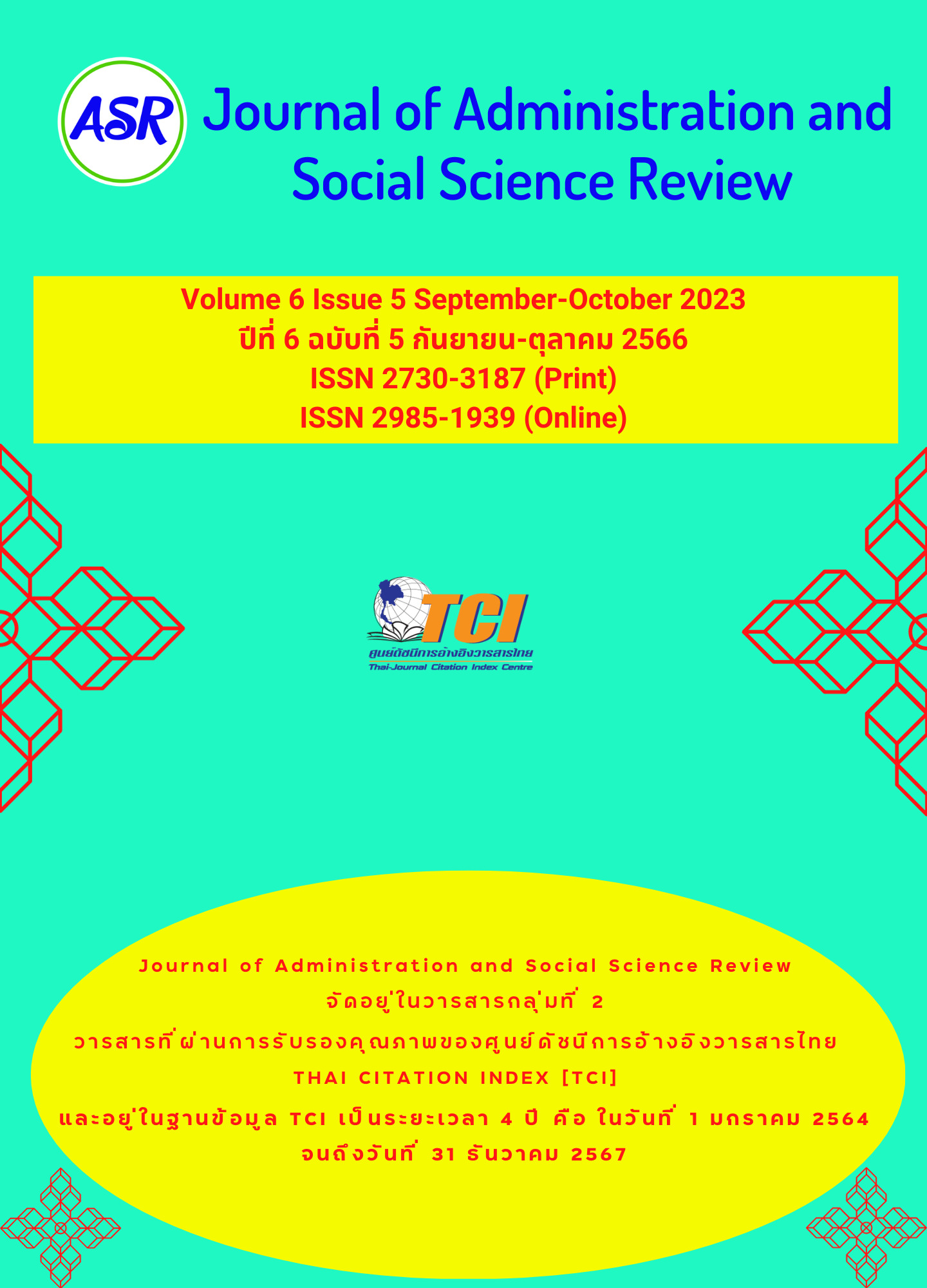Guidelines for Student Affairs Administration of Ruamchit-Phalued School Group under Uttaradit Primary Educational Service Area Office 2
Keywords:
student affairs, student affairs administration, suitabilityAbstract
This research article aims to study the needs and requirements for the business administration of the Ruamchit-Phalued School Group under the Office of Uttaradit Primary Educational Service Area Office 2. The population for the objectives items 1 and 3 were school administrators, teachers, school committees. There were 118 people in the Ruamchit-Phalued School group. The second objective sample group was 4 school administrators, 3 award-winning teachers in student affairs, 1 psychologist, and 1 supervisor, totally 9 people. The research tools were questionnaires and interview forms. Data were analyzed by means of frequency, percentage, mean, and standard deviation, priority needs index and content analysis.
The results showed that the priority indexes for the administration of student affairs of the Ruamchit-Phalued school group under the Office of Uttaradit Primary Educational Service Area Office 2, in descending order, namely were: teaching beyond the curriculum; promoting democracy, welfare and services teaching work outside the curriculum; promoting morality and ethics in student activities with discipline and behavior, and student support system. Guidelines for the student affairs administration of the Ruamchit-Phalued School Group, under the Uttaradit Primary Educational Service Area Office 2, should include namely: teaching work beyond the curriculum; promoting democracy, creating manuals with practice activities, welfare and services, educational institutions, policymakers, and mutually evaluating the project; teaching work outside the curriculum, with a student manual of promoting and training morals and ethics in collaboration with relevant agencies. In terms of student activities, educational institutions and related persons should understand the assigned duties mutually. For the discipline and behavior, the educational institutions and related persons should integrate their measurement for supporting students. The educational institutions and involved people should have a mutual agreement for creating the guidelines, nurturing and assisting students.



